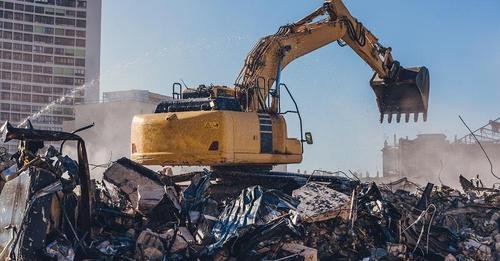Demolishing a house is a significant undertaking, one that requires careful planning and consideration. Whether you’re tearing down an old structure to make way for a new build or addressing safety concerns with an existing property, there are several important factors to keep in mind throughout the demolition process. From legal requirements to environmental considerations, here are some key things to consider when planning for house demolition.
1. Legal and Regulatory Requirements
Before you even think about swinging a sledgehammer, it’s essential to understand the legal and regulatory requirements surrounding house demolition in your area. This includes obtaining the necessary permits and adhering to local building codes and zoning regulations. Failure to comply with these requirements can result in fines, delays, and even legal action. Consulting with local authorities or hiring a professional demolition contractor can help ensure that you’re meeting all the necessary legal obligations.
2. Safety Precautions
Demolition work can be hazardous, so prioritizing safety is paramount. This includes conducting a thorough site assessment to identify potential hazards such as asbestos, lead paint, or structural weaknesses. It’s also essential to provide proper safety equipment and training for anyone involved in the demolition process, including workers and bystanders. Implementing a comprehensive safety plan and following industry best practices can help minimize the risk of accidents and injuries on the job site.
3. Environmental Impact
Demolition can have a significant environmental impact, from the disposal of construction waste to the release of harmful pollutants into the air and soil. To mitigate these effects, consider implementing environmentally friendly demolition practices such as recycling materials, minimizing dust and noise pollution, and properly disposing of hazardous waste. You may also need to obtain permits or conduct environmental assessments to ensure compliance with regulations aimed at protecting the environment.
4. Salvageable Materials
Before demolishing a house, take stock of any materials that can be salvaged or repurposed. This can include everything from architectural features like doors and windows to building materials like lumber, brick, and metal. Salvaging these materials not only reduces waste but can also save you money on disposal costs and provide valuable resources for future projects. Consider partnering with local salvage yards or nonprofit organizations that specialize in reclaiming building materials to maximize the reuse potential of your demolition project.
5. Budget and Timeline
Like any construction project, house demolition requires careful budgeting and scheduling to ensure its success. Before getting started, create a detailed budget that accounts for all potential costs, including permits, labor, equipment rental, and waste disposal. It’s also important to establish a realistic timeline for the project, taking into account factors such as weather conditions, site preparation, and any unforeseen delays. Building in contingencies for unexpected expenses or setbacks can help prevent budget overruns and keep the project on track.
6. Disposal Plan
Proper disposal of demolition waste is a critical consideration for any demolition project. Depending on the size and scope of the project, you may need to arrange for dumpsters or roll-off containers to collect debris and construction waste. It’s important to follow local regulations regarding waste disposal and recycling to avoid fines or penalties. You may also consider hiring a professional demolition contractor who can handle waste removal and disposal as part of their services.
7. Community Impact
House demolition can have a significant impact on the surrounding community, from noise and dust to disruptions in traffic and utilities. Consideration for your neighbors and the broader community is essential throughout the demolition process. Communicate openly with neighbors about your plans and any potential disruptions, and take steps to minimize inconvenience wherever possible. Being a good neighbor can help foster positive relationships and reduce potential conflicts during the demolition process.
8. Future Plans
Finally, consider your future plans for the property when planning a house demolition. Are you rebuilding on the same site, or do you intend to sell or develop the land? Thinking ahead can help inform decisions about the demolition process, such as whether to preserve certain features or maximize salvageable materials. It’s also important to consider the potential impact of the demolition on property values and future development opportunities in the area.
In conclusion, house demolition is a complex process that requires careful planning and consideration of various factors. By addressing legal requirements, prioritizing safety, minimizing environmental impact, salvaging materials, budgeting effectively, and considering the needs of the community and future plans for the property, you can ensure a successful demolition project that meets your goals while minimizing negative impacts on the environment and surrounding community.









Find Us on Socials